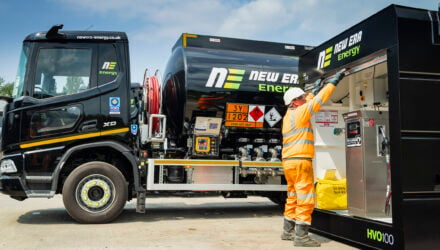
Stuart Rowley, President, Ford of Europe
After detailed consideration, Ford today confirmed the start of a consultation with its unions concerning the potential closure of the Ford Bridgend Engine Plant in South Wales. The proposed action is a necessary step to support Ford’s global business redesign and is part of the company’s strategy to create a more efficient and focused business in Europe.
“Creating a strong and sustainable Ford business in Europe requires us to make some difficult decisions, including the need to scale our global engine manufacturing footprint to best serve our future vehicle portfolio,” said Stuart Rowley, president, Ford of Europe. “We are committed to the U.K.; however, changing customer demand and cost disadvantages, plus an absence of additional engine models for Bridgend going forward make the plant economically unsustainable in the years ahead.”
Factors behind the proposed closure of Bridgend include significant underutilisation of the plant, driven by the impending end of engine production for Jaguar Land Rover, the cessation of the previous generation Ford GTDi 1.5-litre engine, and reduced global demand for the new generation Ford GTDi and Pfi 1.5-litre engine. At expected volumes, the plant also faces a cost disadvantage compared with other Ford facilities building the same engine.
Significant efforts to identify new opportunities have not been successful.
It is proposed that production of the new generation Ford 1.5-litre engine will end at the Bridgend facility in February 2020, with manufacture of the engines supplied to Jaguar Land Rover ceasing in September 2020, when it is proposed that Bridgend will close.
As part of its proposals, Ford also has provided details of a comprehensive plan with an enhanced separation programme for Bridgend employees. This includes helping employees with redeployment opportunities to other Ford sites in the U.K. and assisting with domestic relocation where possible, or supporting them to find new employers or pursue new opportunities, such as creating their own businesses or training for new careers.
“As a major employer in the U.K. for more than a century, we know that closing Bridgend would be difficult for many of our employees,” Rowley said. “We recognise the effects it would have on their families and the communities where they live and, as a responsible employer, we are proposing a plan that would help to ease the impact.”
Ford currently expects to record pre-tax special item charges of about $650 million in relation to the proposed closure of Bridgend. Approximately $400 million of the charges would be paid in cash and are primarily attributable to separation and termination payments for employees. Non-cash charges of approximately $250 million include pension expense and accelerated depreciation and amortization. Most of the pre-tax special item charges would be recorded in 2019, with the cash outflows occurring in 2020, and are part of the $11 billion in EBIT charges with cash-related effects of $7 billion the company expects to take in the redesign of its global business.
Ford’s Bridgend Engine Plant opened in 1977, and today employs around 1,700 employees, including nearly 400 who signed up to a voluntary separation programme earlier this year and will leave between May and December 2019.
Ford is committed to the U.K., where it continues to be the passenger and commercial vehicle sales leader. Even after the proposed closure of Bridgend, Ford will remain a major employer with significant operations in the country.
Ford’s Mobility Innovation Office in London is developing future mobility solutions for Europe, while the Dunton Technical Centre in Essex is home to Ford’s European market- leading commercial vehicle business which is set to play an even more significant role in the future. Ford will continue to produce diesel engines at the Dagenham Engine Plant in east London, and transmissions at the Halewood Getrag Ford Transmissions joint venture on Merseyside.
For the responses to this article please click here






